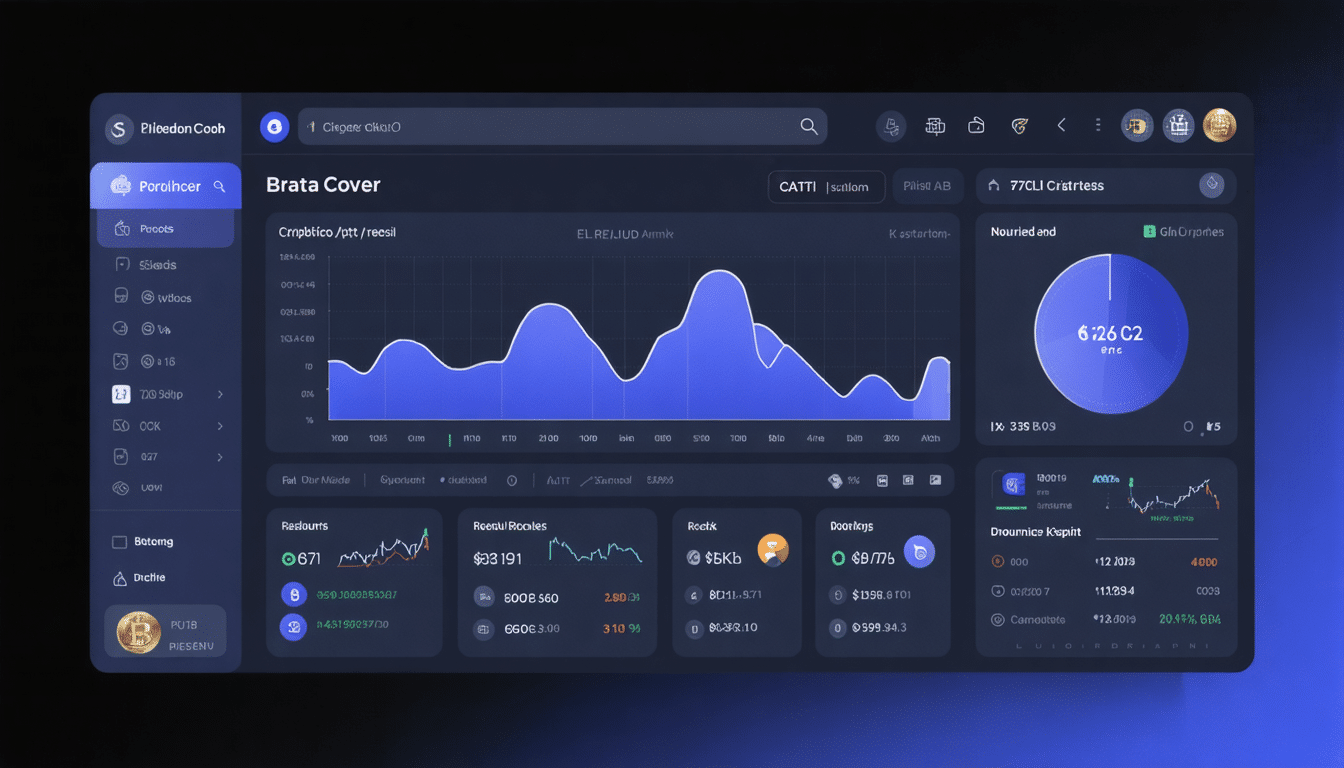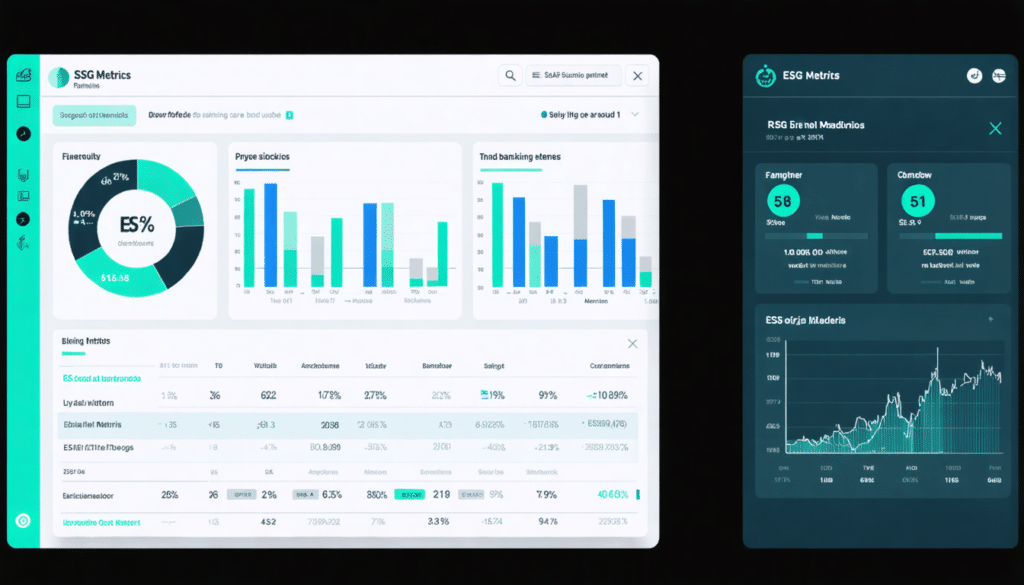In the vast universe of cryptocurrency platforms in 2025, choosing the right one can be confusing. Fintech Magazine has selected the 10 best platforms for you. These digital giants do not just offer exchange services: they integrate innovations, secure technologies, and services tailored to every type of user, whether you are a beginner or an expert. Discover why platforms like Binance, Coinbase, and Kraken stand out. From liquidity levels to security features, this article explores the essential criteria to consider for your crypto exchanges.
Table of Contents
ToggleEssential Criteria for Selecting Cryptocurrency Platforms
Choosing a cryptocurrency platform may seem as complex as managing a traditional investment portfolio. However, certain fundamental criteria can guide this decision. Security is of course at the top. As the saying goes: “No security, no transaction.” Leading platforms like Bitfinex and Gemini take pride in ensuring this security by using advanced techniques like two-factor authentication (2FA) and cold storage.
Next, fees play a pivotal role. A platform may offer free transactions but include hidden fees in the form of spreads. For example, Bittrex is known for its transparent fee structures, allowing users to anticipate their expenses. The available cryptocurrency offerings is another crucial consideration. The broader the range, as on KuCoin which offers over 600 digital assets, the greater the opportunities for diversification.
Moreover, quality customer service should not be underestimated. In case of a problem, responsive support can make the difference between a successful transaction and an expensive frustration. OKEx, for example, has customer support operational 24/7, known for its responsiveness. Finally, the accessibility of the platform, both in terms of ease of use and the availability of a mobile app, is another significant criterion. This is one of the reasons why Coinbase is so popular, especially among beginners who appreciate its intuitive interface.

In summary, the criteria for choosing a cryptocurrency platform primarily depend on your specific needs as a user. Whether you prioritize security, fees, the variety of cryptos, or support, it is about finding a balance that aligns with your investment strategy.
Examples of Leading Cryptocurrency Platforms
Selecting the best platforms is not done randomly. Among these choices, several stand out for their technological innovations and user commitment. Take Binance, for example. A true titan, this platform covers a wide range of services, from simple exchange to staking and buying fractional shares via blockchain. Its strength lies in its ability to adapt to the rapid changes in the crypto market.
Coinbase is another top choice, especially for its user-friendly interface, ideal for crypto newcomers. It includes enriching features such as crypto-paid learning, which combines education and investment. This makes it a platform not only for transactions but also for continuous learning.
As an American platform, Kraken has focused on regulatory robustness, making it a particularly reliable player in the industry. It stands out for exemplary transparency regarding its security practices and advanced risk management tools.
For those looking to invest in specific niches, Bitfinex and Gemini offer unique products like futures contracts and other derivatives, allowing advanced traders to diversify their investment strategies. At Bitstamp, the simplicity and efficiency of the user experience ensure optimal transactional integrity, thus reinforcing user trust.

Advanced Features Offered by These Platforms
Beyond simple transactions, modern crypto platforms offer a rich ecosystem of advanced features that add value for experienced users and novice traders. For example, Huobi offers an algorithmic trading setup that allows users to automate their transactions based on predefined criteria. This feature is particularly useful for those who lack time or wish to explore sophisticated strategies.
On its part, Binance continuously innovates with products like Binance Launchpool, allowing token holders to act as staking farms and receive new tokens before their public launch. A clever way to generate passive profits while actively participating in the developing blockchain ecosystem.

Analytics tools are also among the significant improvements of these platforms. Kraken provides advanced charts and comparative tools to help traders make informed decisions based on market trends. And then there are the integrated wallets, like those offered by Gemini, ensuring secure and easy management of digital assets while allowing for quick exchanges between different types of crypto.
Some platforms, like OKEx, have highlighted swap capabilities between different cryptocurrencies while limiting tax obligations. This detail effectively reduces friction related to costs and time, maximizing returns for the user.
Impact of Regulation on Cryptocurrency Platforms
Regulation plays a crucial role in defining the direction of cryptocurrency platforms. With the intensification of global regulations, major market players like Binance and Coinbase adapt their strategies to stay within legal limits while securing users’ funds. This legal compliance reassures investors about the integrity and sustainability of the platforms.
Indeed, a clear and well-defined regulatory framework can foster investor confidence by reducing the risk of fraud and market manipulation. This is what makes platforms like Kraken recognized for their accounting vigilance and compliance with local laws, assuring users of their good conduct and seriousness.
The implications of regulation do not stop there. They have also led to the introduction of stricter anti-money laundering (AML) and counter-terrorism financing (CTF) policies, closely observed by platforms such as Bitstamp and Huobi. These platforms ensure not only legal compliance but also enhance transparency, which is crucial for maintaining a trusting relationship with users.


In conclusion, a clear regulatory framework does not hinder business if platforms can adapt to it diligently and proactively. Platforms that manage to comply without compromising their services gain user trust and become key players in the dynamic cryptocurrency landscape of 2025.
The Future of Cryptocurrency Platforms in 2025 and Beyond
As we progress into 2025, the question arises: where are cryptocurrency platforms headed? Technological innovation continues to guide their evolution, with the increasing implementation of artificial intelligence and blockchain to improve transaction efficiency and user satisfaction. Platforms like KuCoin have already taken the lead in using AI to analyze market trends and predict fluctuations.
Similarly, the future seems to lean towards increased decentralization, allowing more freedom for users while enhancing security and transparency. Decentralized exchanges (DeFi) are becoming more popular, integrating protocols that make them resistant to censorship and ultra-secure. In this regard, Bitfinex is a leader in implementing these cutting-edge technologies.
Finally, the role of NFTs (non-fungible tokens) and metaverses cannot be ignored. With platforms like Binance integrating these digital assets into their offerings, the future promises to be a space where virtual reality and finance meet, creating unprecedented opportunities for investors.
In conclusion, 2025 marks a major turning point for cryptocurrency platforms, opening up broader horizons thanks to emerging technologies and refined regulations, each reshaping the landscape of the global digital economy a little more. Thus, choosing a platform that fits your needs becomes as strategic as the investment itself.




